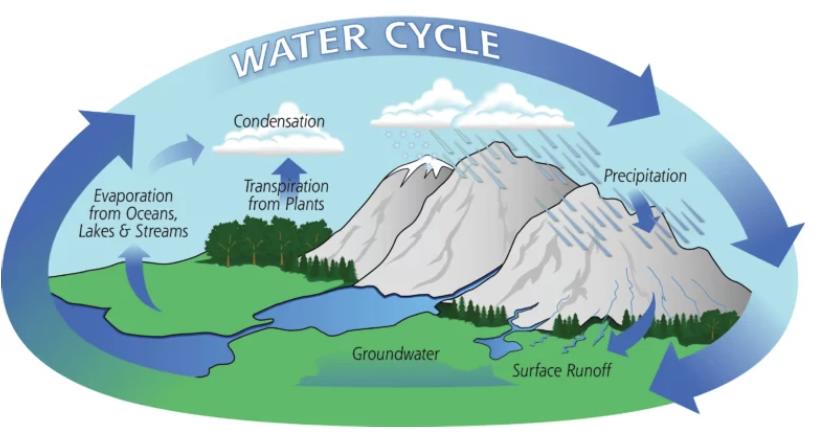by Chris Black
Telling people they need to save water is a bit like telling black people they’ll become rich by saving money.
It’s not going to make a difference, and it’s cruel.
Water is not something you have to use less of. Water is supposed to be in a constant cycle of use and reuse.

Animal feces, urine, and carcasses fertilize the soil.
You are not a black hole sucking water out of reality.
The water you drink will eventually come back around, one way or another.
The planet is not running out of water.
Water is not coming out of the atmosphere into space.
The only real threats to water availability are pollution with toxic chemicals, pharmaceuticals, hormones, plastics, soap, shampoo, and other crap that is expensive to filter out and that can make water unfit for purpose.
But you won’t hear Greta or any of these morons pushing for a real conversation about that.
I spent much of last year’s boiling hot, dry summer freaking out about drought. Baking days, hosepipe bans, parched plants and suffering wildlife gave me acute day-to-day anxiety and a real fear for the future. This year, I was determined to do something more productive than hand-wringing, so I resolved to cut my water consumption.
Then it rained for much of the summer. The UK had 170% of average rainfall this July, making it the sixth wettest on record. But that doesn’t make my efforts pointless: we still need to save water. Scientists have calculated that the climate crisis makes drought 20 times more likely, so one wet summer only offers short-term respite. The UN predicts that demand for fresh water will exceed supply by 40% by 2030 worldwide. In the UK, Sir James Bevan of the Environment Agency warned in 2019 that, without action, UK water companies would face the “jaws of death” – the point at which demand for water outstrips supply – within 20 years.
Also, saving water reduces your carbon footprint. Treating and transporting is energy-intensive business: approximately 12% of a typical gas-heated home’s energy consumption in the UK goes on heating water. Then there is the bottom line: an increasing number of people now have metered water consumption, so the less you use, the less you pay.
Would water companies tackling leakage – which amounted to more than 1tn litres in England and Wales in 2021, according to Ofwat – have vastly more impact than me dodging showers? Of course. But we can all make a difference. Many tweaks to household habits are easy to implement, plus there are bigger lifestyle changes to consider. This is what happened when I tried them out.
Besides entirely missing the mark and promoting neurotic behavior, some of the “water saving” tips could be harmful for people’s health.